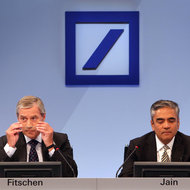In college, schoolwork was not a priority. “I didn’t really care about the classes,” Ms. Quinn writes, adding, “I am also an unbelievably slow reader, who has to read things a couple of times to digest them.”
And she offers this frank assessment of her physique, courtesy of her gruff but caring father, Lawrence Quinn: “You’re big-boned. You would have been good back in Ireland in the fields flipping sheep.”
In an affecting but carefully assembled 240-page memoir, Ms. Quinn, the City Council speaker and a Democrat, offers a breezy, confessional and sometimes opaque look at her transformation from middle-class Long Island daughter to front-runner for mayor of New York City.
She recounts being called a homophobic slur in middle school and feeling too “frightened and upset” to tell her family. She discusses the guilt she still carries from her teenage years, when her mother died of cancer. “I have not totally gotten over the sense that when things are going bad, it’s my fault and mine alone,” she writes.
But Ms. Quinn’s candor about her personal life is as notable as her vagueness about politics. There is not a single reference to the slush-fund scandal that has been her lowest point as speaker. She says little about her relationship with Mayor Michael R. Bloomberg, whom she calls “my colleague.” The battle over term limits is disposed of in two pages, while thousands of words are devoted to her wedding last year.
The memoir, titled “With Patience and Fortitude,” after the twin marble lions at the New York Public Library on Fifth Avenue, is to be released in June, three months before the Democratic primary for mayor; a copy was obtained by The New York Times. A common accouterment of high-profile political campaigns, the book is a sign of the national interest Ms. Quinn has attracted — and some rivals have begrudged — as she vies to become the city’s first female and first openly gay mayor.
Ms. Quinn, who wrote the memoir with Eric Marcus, whose other credits include an autobiography of Greg Louganis, had to juggle finishing the manuscript with her responsibilities as Council speaker and mayoral candidate. The book, a slim hardcover with a larger-than-average font, is being released a month later than first announced.
Flashes of Ms. Quinn’s humor appear throughout. She cites “Downton Abbey” to describe her grandmother’s work as a maidservant. Running a political campaign meant keeping “a zillion balls in the air at once.” When she began dating her future wife, Kim M. Catullo, she notes: “Things with Kim moved crazy fast. It was like the old joke: What do lesbians bring on a second date? A U-Haul.”
Still, much of the prose can be flat and unadorned, and some passages offer curiously little insight. On why she chose a career in government: “I really like being with people and doing things with them, and it has always made me feel good to get things done.”
On the therapeutic benefits of horseback riding, which Ms. Quinn describes as “the activity that sustained me” as a teenager: “If you have ever looked into the eyes of a horse, you know what I mean. Sadness and kindness flow from them.”
Ms. Quinn does not discuss why, as speaker, she supported overturning the term-limits law and allowing Mr. Bloomberg to run for re-election in 2009. “I struggled to balance what was best for him, for the city, for the City Council and for me personally,” she writes. The experience “was tough, but on reflection I have no regrets about my decision.”
The book is more revealing when it comes to Ms. Quinn’s relatives, many of them immigrants who arrived poor in New York City from Ireland and later struggled with alcoholism. She recalls an early lesson in gun control from her grandmother, who confiscated pistols from their relatives in the Police Department at family gatherings. “At the end of the evening,” Ms. Quinn writes, “she would decide who was sober enough to get their gun back.”
She writes with frankness and empathy about her father’s reticence and the pain of her mother’s cancer. “Just thinking about all her sorrows makes me sad for her,” Ms. Quinn writes. “I really doubt I would have become the first woman — or the first L.G.B.T. person — to be elected speaker if I hadn’t been driven by a leftover sense of guilt and responsibility for my mother’s illnesses and absences.”
Article source: http://www.nytimes.com/2013/05/31/nyregion/from-christine-quinn-a-memoir-more-personal-than-political.html?partner=rss&emc=rss
